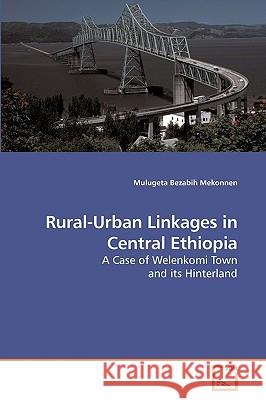Rural-Urban Linkages in Central Ethiopia » książka
Rural-Urban Linkages in Central Ethiopia
ISBN-13: 9783639213805 / Angielski / Miękka / 2009 / 128 str.
Since the Industrial Revolution, there have been two dominant views regarding development. In the 1960s many developing countries subscribed to the urban and industrial development paradigm to achieve rapid development and catching up with the developed world. The 1970s saw that the trickle-down paradigm could not achieve progress in the rural areas and this led to a shift towards rural development strategies. These strategies have also failed because of the neglect of the urban dimension. Recent approaches have given emphasis to the mutual development of both urban and rural areas. In Ethiopia attempts to bring about development focused on rural areas. However, the scale of rural poverty and the state of agricultural sector hampered its ability to kick-start its weak economy. This opportunity could be realised by investigating the rural-urban linkages. This book explores the type and extent of rural-urban linkages, and the factors responsible in shaping these linkages in Welenkomi town and its hinterland in Ethiopia. The book could have a paramount significance for development experts, policy makers, researchers, professionals and students in the field of development studies.











